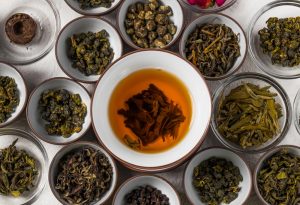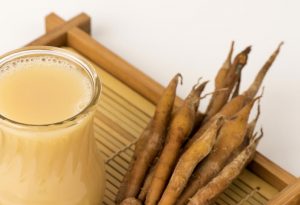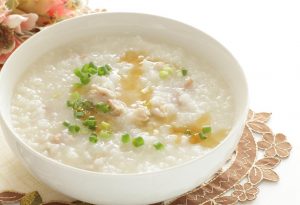In this Article
Eating outside food has become a part of the way we socialise today – be it having a good time with family, enjoying one-on-one time with one’s partner at the movies, or even colleagues getting together after work. Being pregnant comes with more intense food cravings than ever, so there’s more of a chance of eating outside food. Though Chinese food rates amongst the most popular cuisines in the world, if you are pregnant, take a pause and contemplate. While you may crave Chinese food during pregnancy, what to avoid something you should know.
Glutamate occurs in natural forms and is present in many fruits and vegetables. It is also present in breast milk. However, MSG (monosodium glutamate) is artificially made – it is said to be excitotoxic, which means that it stimulates the growing brain and nerves when consumed during pregnancy and can lead to the development of autism, schizophrenia, etc. in the baby, as the body cannot distinguish between natural glutamate and MSG and metabolises both.
Reasons Pregnant Women Should Avoid Chinese Food
During pregnancy, one should follow a healthy diet as the baby’s health is dependent on the mother’s. You will feel cravings for tasty (and not necessarily healthy) food and snacks, but cravings for Chinese food, especially in the first trimester of pregnancy can have adverse effects on your and your baby’s health. Chinese food should be avoided, especially if it is made at street stalls because the freshness of the ingredients is questionable. This can prove harmful to you and your baby.
Here are the reasons to keep Chinese food off your dining table:
- Chinese cuisine that is available in India is known to contain MSG – monosodium glutamate. If you are pregnant, it is best to avoid it since it could cause allergic reactions, headaches, and even hot flashes.
- MSG is used in Chinese food to enhance its taste. The consumption of Chinese food during pregnancy can make your morning sickness worse. It can also cause heart palpitations and numbness around the face and neck area (in extreme allergic reaction cases).
- The glutamate in MSG can travel through the placenta and can have a telling impact on the brain and nervous system of the baby. The placental barrier protects the baby from acidic food, and MSG can break this barrier and expose your baby to germs and harmful bacteria.
- MSG contains sodium, which can lead to dehydration, bloating and high blood pressure, especially when consumed regularly. During pregnancy, it causes water retention which can be harmful to the body. It can further complicate things by causing oedema and can enhance pregnancy complications like preeclampsia.
- If you have been allergic to MSG prior to pregnancy, it is best to stay away from Chinese food. Sleep disturbances, vomiting, nausea and headaches are common reactions; so avoid Chinese food during pregnancy.
- Non-essential amino acids in MSG can lead to developmental disorders, thus arresting the baby’s growth in the womb.
- Although our body produces glutamate naturally and it is found in fruits and vegetables, artificial MSG is made by fermenting sugar which is harmful to the health of mother and child. Hence it is best avoided during pregnancy.
- Seafood can contain high levels of mercury which can damage your baby’s health, and hence should be avoided completely or consumed in limited quantities.
Chinese Foods That Are Said to Be Helpful During Pregnancy
It is a known fact that due to the presence of excessive amounts of MSG in Chinese food, pregnancy can be affected. However, certain Chinese foods and their ingredients can prove to be beneficial during pregnancy:
- Chinese/Green Tea: Antioxidants that are present in green tea can prove to be beneficial for your health and your baby’s too. However, check the caffeine content before you consume it.

2. Chinese Ginger: This food is well-known for its anti-microbial and anti-viral properties. When included in your diet during pregnancy, it revitalises the body and helps relieve nausea.

3. Congee: Congee is a popular rice porridge that is often eaten as breakfast in China and several other Asian countries. It has a bland taste, but it full of nutrients and very filling. It also helps control nausea during pregnancy.

4. Bean Sprouts: This wonder food contains proteins, phytonutrients and vitamins. It can prove to be beneficial for your baby’s health and brain development.
5. Fresh Tofu: A kind of paneer made out of soy milk, tofu contains many proteins and antioxidants that help in maintaining your health during pregnancy.
6. Coconut Milk: The presence of potassium, magnesium, sugar and protein in coconut milk can boost foetal development to a great extent.
During pregnancy, if you want to taste or try out new food, it is best to speak to your doctor and understand its implications on your and your baby’s health. If you cannot overcome the craving to eat tasty Chinese food, ensure that you consume it at a known restaurant. Search for restaurants that create dishes with low levels of sodium and MSG. Noodles, steamed veggies and rice are your best bet during this period, and fried Chinese food should be avoided. After all, your baby’s health is more important than satisfying your cravings for Chinese delicacies, isn’t it?
Resources and References: Being the Parent









